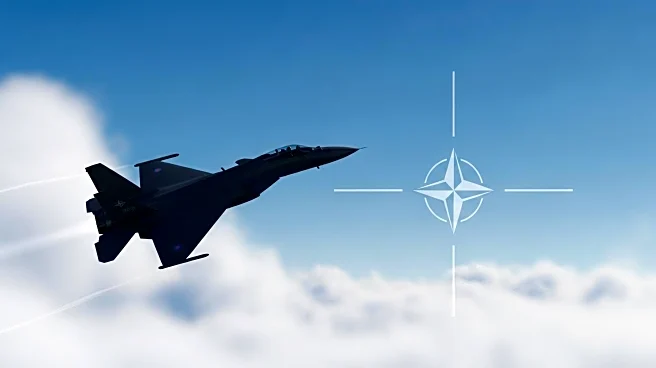What's Happening?
Estonia has reported a violation of its airspace by three Russian fighter jets, describing the incident as 'unprecedentedly brazen.' The aircraft entered Estonian airspace without permission and remained for 12 minutes. This marks the fourth such violation this year. In response, Italian F-35 fighter jets, part of NATO's Baltic Air Policing Mission, were scrambled to intercept the Russian jets. Estonia's Foreign Minister Margus Tsahkna condemned the incursion and called for consultations under NATO's Article 4. The incident follows similar violations in Poland, raising concerns about Russia's aggressive testing of NATO's defenses.
Why It's Important?
The airspace violation by Russian jets underscores escalating tensions between NATO and Russia, particularly in the Baltic region. Such incidents test NATO's readiness and response capabilities, potentially straining diplomatic relations and increasing the risk of military confrontation. Estonia, along with other Baltic states, is a staunch supporter of Ukraine, and these provocations may influence NATO's strategic decisions and defense postures. The incident highlights the need for robust air defense systems and political unity among NATO members to deter further aggression.
What's Next?
NATO's North Atlantic Council is set to convene to discuss the incident in detail. The meeting may lead to increased political and economic pressure on Russia, as well as potential adjustments in NATO's defense strategies. Estonia and other affected countries may seek stronger assurances and support from NATO allies. The situation could prompt further diplomatic engagements and military readiness exercises to prevent future violations and ensure regional security.
Beyond the Headlines
The repeated airspace violations by Russia may reflect broader geopolitical strategies aimed at testing NATO's resolve and unity. These actions could be part of a larger pattern of Russian military assertiveness in Europe, challenging international norms and security agreements. The incidents may also influence public opinion and political discourse within NATO countries, potentially affecting defense policies and international relations.








